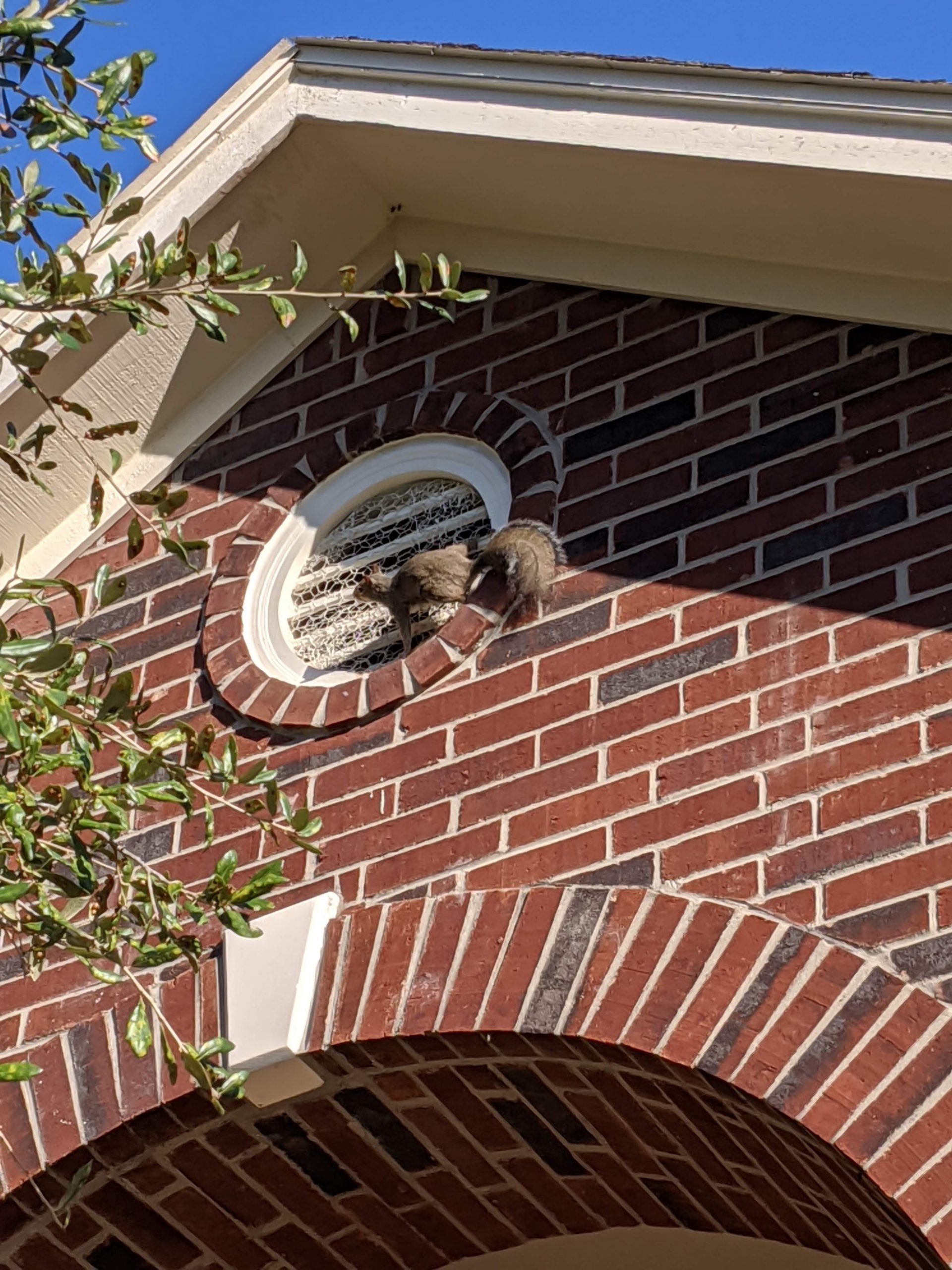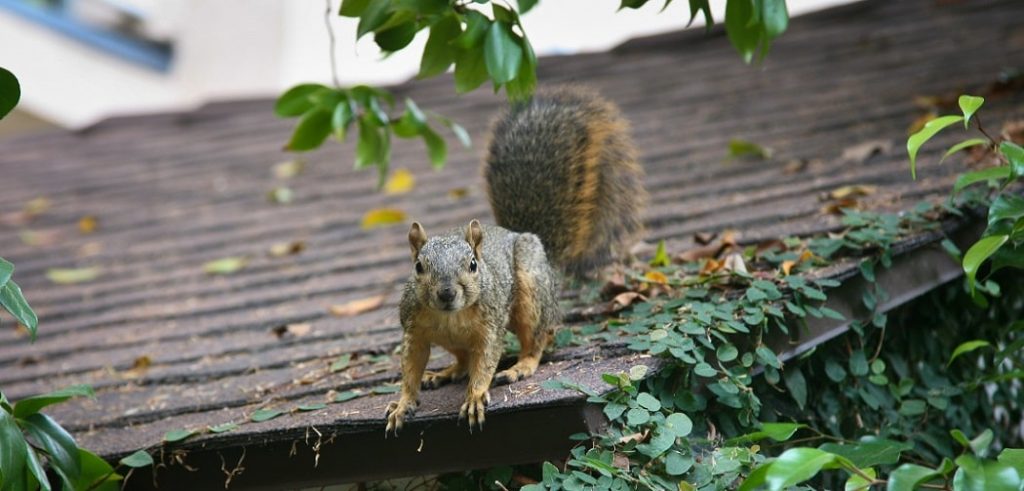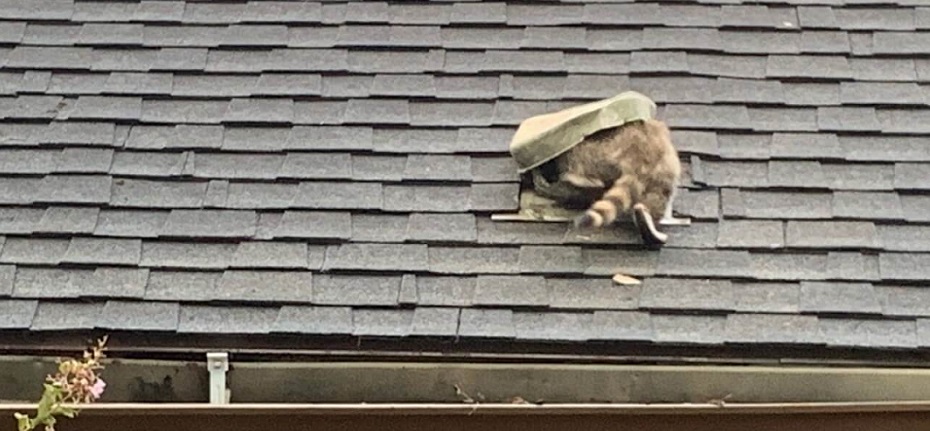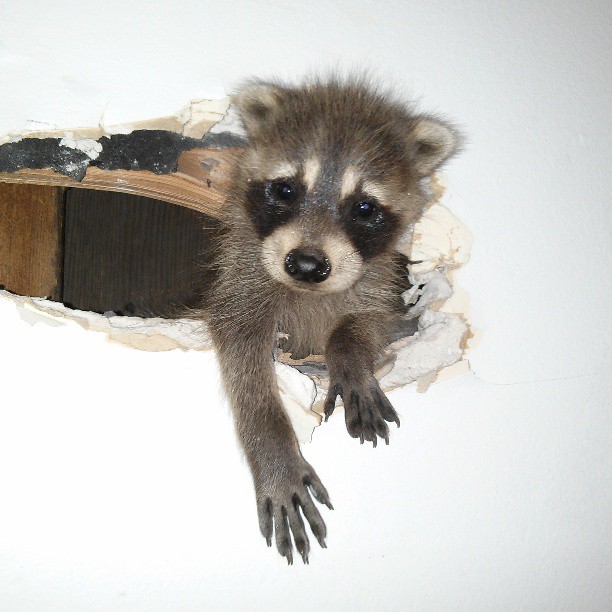When squirrels get in your walls, it won’t take long for you to notice their presence. You may hear them communicating with chatters, chirps, whistles, barks, and squeaks. Other distinctive squirrel sounds in walls include rustling, possibly of materials they use to build a nest. You can hear their feet scurrying across the floor and scratching drywall.

Strange smells left by many squirrels include the scent of their feces and urine, which they excrete inside your walls. Their urine dampens drywall, causing mold. If mold spores get into your ducts, your HVAC system will send the spores into all the rooms in your home.
Squirrels harbor various diseases, and their fur can be filthy even if it appears clean, leaving a trail of odors wherever it travels. If a squirrel dies while living in your walls, the foul smell of a rotting corpse can overtake your home for days or weeks.
If you have electrical wiring inside your walls, squirrels will damage it by chewing or gnawing on it. This behavior is hazardous and can lead to a house fire. If you have pets, especially dogs, expect them to become obsessed with finding the squirrel.
How Did A Squirrel Get Inside the House?
Squirrels only need about a three-inch opening to squeeze their heads and bodies through. They get in your walls through an opening on your roof, like an uncapped chimney, attic vent, roof holes, or other unprotected areas. Once inside, they find an opening in a wall cavity and begin making a nest.
Squirrels spend most of their day outside gathering food and nesting materials. They will take and store what they find inside your walls. Nests consist of twigs, leaves, flowers, grass, and more. If they pass through your attic or another room to get into your walls, they will collect items they find, like family photos, old wedding dresses, and other sentimental treasures.
If a squirrel finds a hole less than three inches in size, it will use its sharp claws and teeth to make it bigger. Squirrels are capable of chewing through many different materials, including plastic, soft metals, vinyl, shingles, wood, mesh, fabrics, and more.
You may not notice the crack or hole allowing squirrels to travel back and forth, inside and outside. Hiring a professional wildlife expert to seal all possible entry points is recommended.
Why Are Squirrels in Walls?
Other than food and water, squirrels need nesting places for survival. They spend much of their time there during the winter months. Although they do not go dormant, their activity lessens when it’s cold out. If you have squirrels in your walls, they have found the perfect place to build a nest.
It is dark, snug, and warm between your walls and secure from humans and predators. In addition to sleeping, squirrels build nests to give birth to pups, typically only once or twice a year. If you do not get rid of squirrels before they give birth, you will have a family of squirrels, which means noises get louder and smells get stronger.
Concerns of Squirrels in Walls
Squirrels cause significant damage to the interior and exterior of your home. With their ever-growing teeth, they cut electrical wires, create holes in drywall, baseboards, studs, and beams, build nests and store treasures in gutters, pipes, and ducts, and cause fire and flood hazards. They also chew and scratch holes in shingles and roofing materials, causing leaks into your home that can develop mold.
Squirrels may bring rotten fruits or vegetables inside your walls, leading to even more foul odors and attracting various insects. Outside, squirrels strip bark from trees and raid gardens and birdfeeders. As they run back and forth on overhead wires, the wires begin sagging, eventually laying on your roof or trees.
Everywhere squirrels go, they leave feces and urine behind. Their waste can harbor numerous diseases that can be transmitted to humans, including:
- Salmonellosis
- Leptospirosis
- Tularemia
- Rabies
- Ringworm
- Squirrel pox
Squirrels also carry parasites, such as fleas, ticks, mites, and lice. These parasites can travel from the squirrel to you and transmit bacterial infections, like Lyme disease from deer ticks.
Is The Squirrel Stuck?
Squirrels in walls cause different problems if they get stuck and can’t get out. Some squirrels travel so far down into a wall cavity that you won’t be able to get them out, either. If a squirrel gets stuck in a wall, it will actively try to find a way out. You may hear noises like scratching, clawing, and chewing as it tries to put a hole in the materials surrounding it. You may hear the squirrel screaming or calling for other squirrels, especially if it has babies.
Squirrels stuck in walls and can’t get out eventually die, leaving behind an odor of rotting flesh that can linger and travel throughout your home.
Removing squirrels in walls is not recommended for homeowners since it puts you at risk for disease. Handling feces, urine, or a dead squirrel is not appealing, unsanitary, and dangerous. Contact a wildlife control professional with the proper safety equipment to remove, release, or dispose of a squirrel in your wall cavity.


